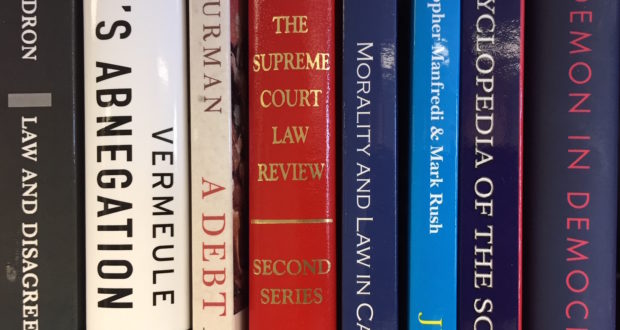How should the objective of a criminal prohibition be determined for the purpose of substantive review under section 7 of the Charter?
I’m grateful that my attempt to answer that question will be published in a special edition of the Supreme Court Law Review. In my paper, I argue that the Supreme Court in Carter (2015) struck down the prohibition on assisted suicide based on an unjustified interpretation of the objective of that prohibition – an interpretation which made inevitable the finding that the law was “overbroad”.
The Court also struck down section 14 of the Criminal Code – which says that the consent of a homicide victim to being killed is never a defense to a homicide offense – without discussing the objective of that provision or the homicide provisions to which it is connected. These shortcomings raise serious questions about the ruling’s legitimacy and demonstrate the need for an intelligible and consistently applied rule of statutory interpretation for Charter review of under section 7.
I propose a basic framework for substantive review under section 7. It is based on the rule in Bedford – which the Court cites but does not follow in Carter – namely that the objective of a criminal prohibition is to “be taken at face value” and “confined to measures directly targeted by the law”. A textualist approach, in other words, would resolve what Hogg has refers to as the “exceedingly discretionary power” of judges to strike down laws they dislike under section 7.
The paper is called “The ‘Basic Bedford Rule’ and Substantive Review of Criminal Law Prohibitions Under Section 7 of the Charter”. The pre-order price of the essay collection is steep, but these essays will eventually be available online (via Quicklaw). Check out the titles here. I’m sure several will be of interest to ruleoflaw.ca readers.
 Advocates for the Rule of Law
Advocates for the Rule of Law






